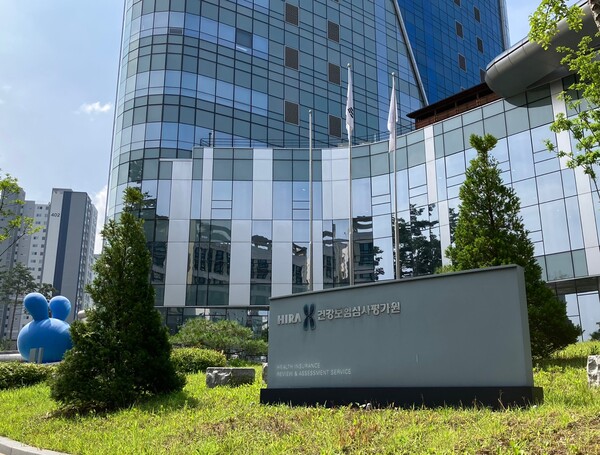Handok’s Vyxeos liposomal Injection, a combination of cytarabine and daunorubicin for therapy-related acute myeloid leukemia (t-AML) and acute myeloid leukemia with myelodysplasia-related change (AML-MRC), has crossed the first threshold for reimbursement in its second attempt.

Gilead Sciences’ Trodelvy Injection (sacituzumab govitecan), a treatment for unresectable locally advanced or metastatic triple-negative breast cancer, was successful in establishing a reimbursement standard at its first attempt.
BeiGene Korea's Brukinsa Capsule (zanubrutinib) also crossed the threshold for coverage after multiple challenges in mantle cell lymphoma (MCL), chronic lymphocytic leukemia (CLL), and small lymphocytic lymphoma (SLL).
However, MSD Korea’s Keytruda, which challenged the reimbursement for multiple indications, received a reconsideration decision again. The government plans to reconsider the decision based on the submission of the drugmaker's financial sharing plan to the total financing of the proven indications and medical validity.
The Health Insurance Review and Assessment Service (HIRA) held a cancer review committee on Wednesday to deliberate on the reimbursement standards for drugs used for cancer patients.
As a result, Handok's Vyxeos liposomal preparation (cytarabine + daunorubicin) passed the reimbursement criteria for treating newly diagnosed t-AML in adults and newly diagnosed AML-MRC in adults.
Vyxeos won approval from the Ministry of Food and Drug Safety (MFDS) in November last year and immediately challenged the reimbursement application but failed to pass the cancer disease review committee meeting in June.
Vyxeos was introduced by Ireland-based global pharmaceutical company Jazz Pharmaceuticals, which developed the liposomal formulation to improve the effectiveness of combining cytarabine and daunorubicin used as intensive chemotherapy to treat acute myeloid leukemia.
Gilead's Trodelvy, an effective treatment for triple-negative breast cancer (TNBC), a disease with significant unmet need because there are virtually no anticancer drugs available for patients who have relapsed, crossed the cancer panel’s threshold in its first attempt for treating adult patients with unresectable locally advanced or metastatic triple-negative breast cancer who have received two or more prior systemic therapies, at least one of which was for metastatic disease.
BeiGene Korea’s Brukinsa (zanubrutinib) also succeeded in expanding reimbursement criteria for monotherapy in adult patients with extranodal mantle cell lymphoma (MCL) who have received one or more prior therapies; in adult patients with chronic lymphocytic leukemia (CLL) or small lymphocytic lymphoma (SLL) who have received one or more prior therapies; and in expanding reimbur. Monotherapy in adult patients with small lymphocytic lymphoma (SLL) and patients with previously untreated chronic lymphocytic leukemia (CLL) or small lymphocytic lymphoma (SLL) 65 years and older or under 65 with comorbidities.
BeiGene applied for coverage at the same time as Brukinsa’s approval from the MFDS but was denied coverage for Waldenstrom Macroglobulinemia (WM) and twice for other indications. However, it succeeded in expanding coverage on the third attempt.
Roche Korea's Xeloda Tablet (capecitabine), a treatment for radically resected cholangiocarcinoma or muscle-invasive gallbladder cancer, also won recognition as eligible for coverage.
However, AstraZeneca's Imfinzi, in combination with gemcitabine and cisplatin, failed to gain coverage as a first-line treatment for patients with locally advanced or metastatic biliary tract cancer. Still, gemcitabine and cisplatin, in combination with durvalumab, were approved for co-payment.
Besides, Boryung Pharmaceutical's Gemzar Injection (gemcitabine), a treatment for adenocarcinoma of the appendix with radical resection, also failed to expand coverage.
On the other hand, MSD Korea's Keytruda, which has been attracting attention by applying for benefit expansion for 13 indications simultaneously, has not crossed the threshold of the cancer panel by receiving a re-discussion decision.
The committee discussed the drug in combination with chemotherapy for the treatment of patients with locally recurrent or metastatic triple-negative breast cancer who are PD-L1-expressing (CPS≥10) and inoperable as a first-line treatment for patients with metastatic or inoperable recurrent squamous cell carcinoma of the head and neck, as monotherapy in patients with PD-L1-expressing (CPS≥1) and combination with platinum and fluorouracil (5-FU) chemotherapy; as treatment for PD-L1-expressing (CPS≥1) and persistent, combination therapy with chemotherapy with or without bevacizumab for the treatment of patients with recurrent or metastatic cervical cancer; and as treatment of BCG-refractory high-risk non-muscle-invasive bladder cancer with intraepithelial neoplasia, with or without papilloma, for which cystectomy is not feasible or elected to be performed.
However, the panel decided to rediscuss it.
"For many indications that have been requested for benefit expansion, we will first review the medical feasibility and medical necessity of each indication and analyze the impact by receiving the pharmaceutical company's financial contribution (plan) for the total financing of the proven indication, and decide whether to set the benefit standard," the panel said.

